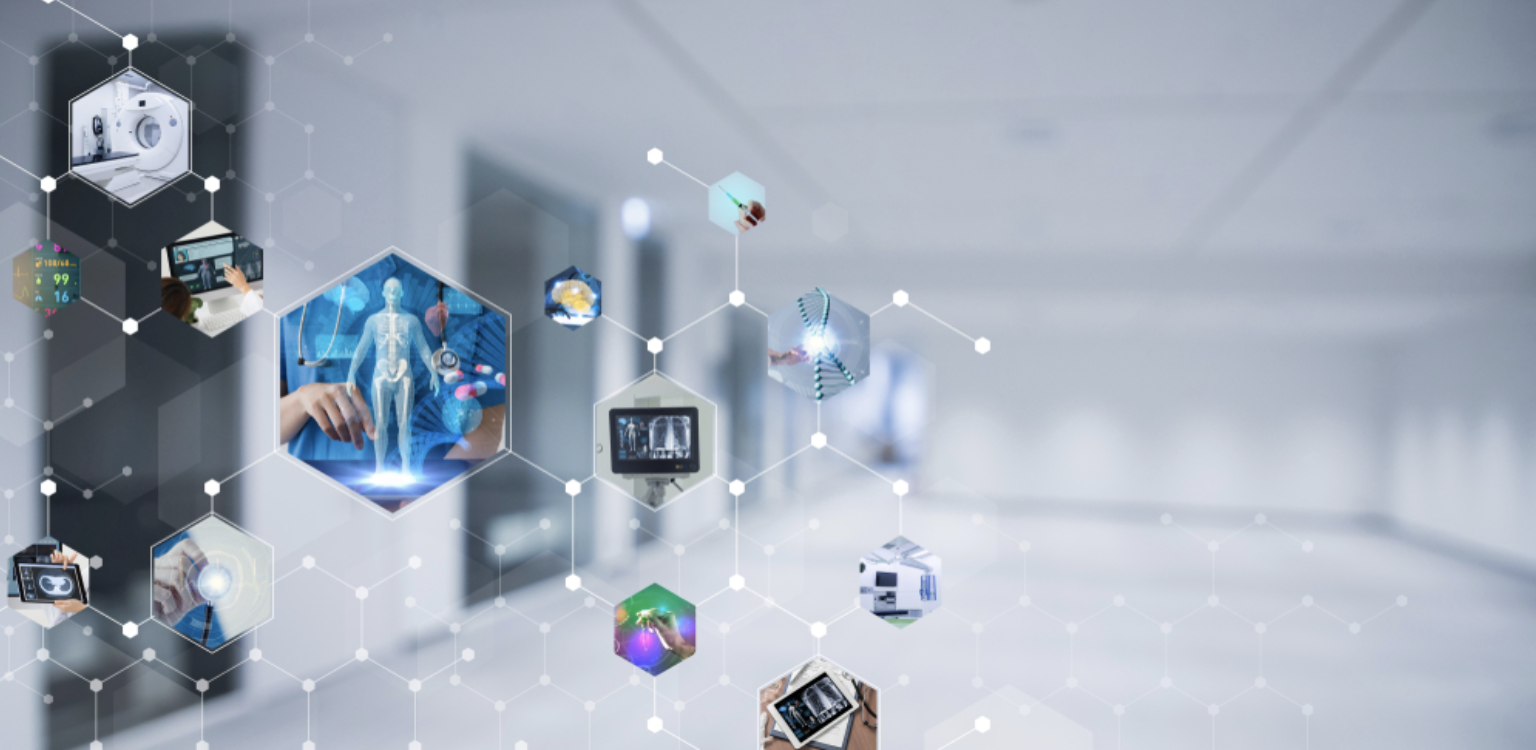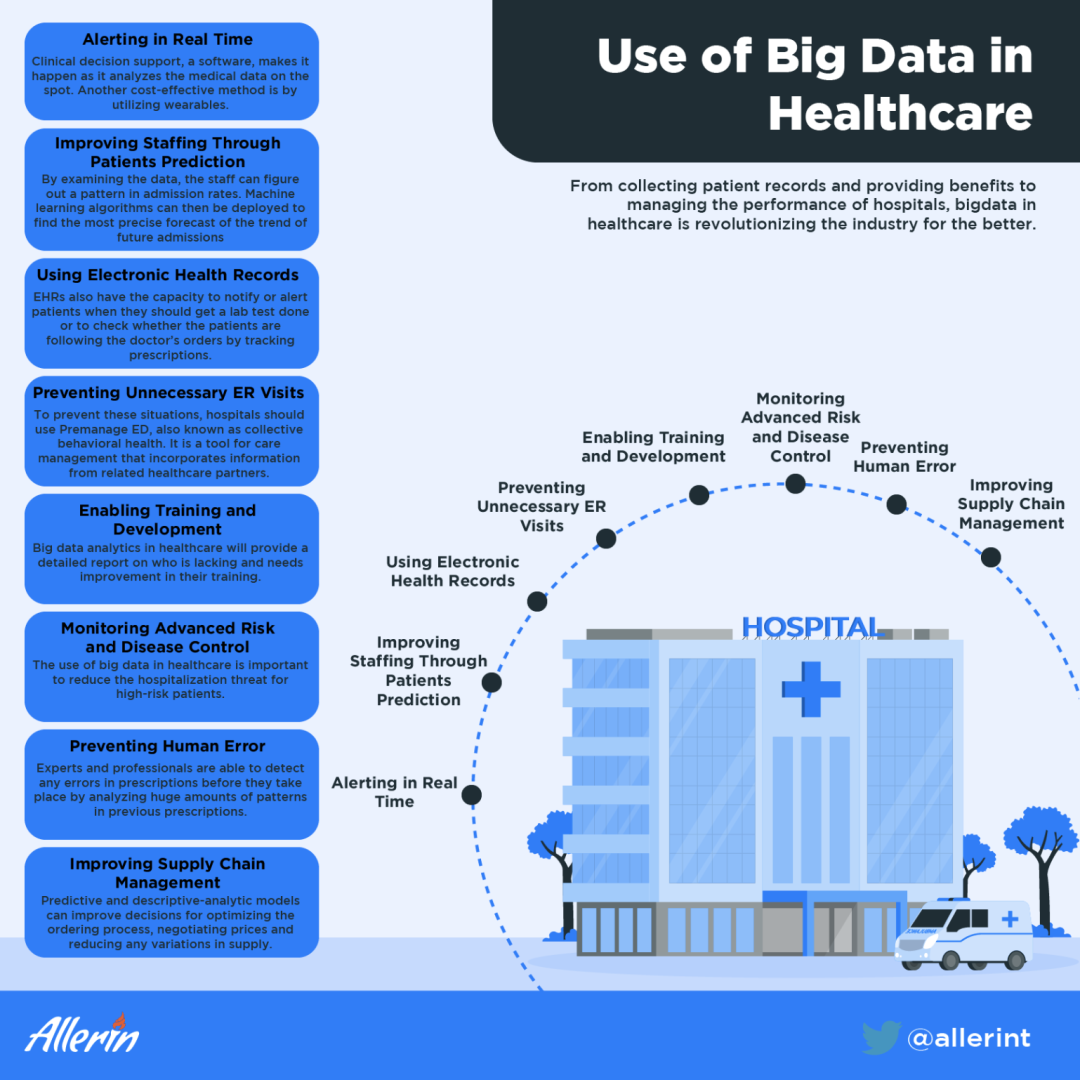Comments
- No comments found

Big data is revolutionizing the healthcare industry for the better.
The use of big data analytics can be seen in various industries. It allows organizations to make sense of massive sets of data and derive deep insights, allowing them to enhance their organization's performance cost-effectively. One such industry is healthcare. Big data in healthcare allows hospitals to analyze, control and leverage the data, which is rather too big and complex for traditional or dated technologies.
With the rising population, the lifespan of average humans is also increasing. This highlights the need for healthcare professionals to quickly tackle challenges that affect the health of patients. Healthcare analytics has the power to minimize the cost of treatments and preventable diseases and improve the overall quality of life. Medical practitioners, through the use of big data, are able to collect a large amount of data and churn up the best strategies from the derived insights.
Improving patients' lives and paving the way for the advancement of healthcare requires extensive analysis and meticulous measurement of the data collected. The same is then used to create actionable insights. It can be a great source of information for healthcare professionals and stakeholders to develop improvements.
The use of big data analytics in healthcare provides reports that enable professionals to predict and quicken the problem-solving process before it’s too late. Big data in healthcare offers many more benefits, such as:

One of the crucial functionalities provided is real-time alerting. It guides medical practitioners when they are writing up a prescription for the patient. Clinical decision support, a software, makes it happen as it analyzes the medical data on the spot. Another cost-effective method is by utilizing wearables. These devices collect the data of the users and continuously feed the data into the cloud. This reduces the cost of doctors having to come in physically to help the patients.
One challenge that shift managers face is deciding the number of staff they want to maintain per shift. If the number is low, it can lead to fatality in the health of both the staff and patients, but if the staff is more, then the labor cost increases. Big data can help provide a solution by using data from various different sources to figure out the hourly and daily forecast of the number of patients expected at each facility. By examining the data, the staff can figure out a pattern in admission rates. Machine learning algorithms can then be deployed to find the most precise forecast of the trend of future admissions.
One of the most widely used applications of big data in healthcare is records. Every person has a digital record of their medical history, demographics, allergens, and more. These records are secured and shared, made to be available to both private and public sectors. All digital records have one modifiable file, which basically allows doctors to make changes over time with no danger of data replication and no paperwork. EHRs also have the capacity to notify or alert patients when they should get a lab test done or to check whether the patients are following the doctor’s orders by tracking prescriptions. Due to its widespread use, the global market for electronic health records (EHR) is expected to reach $26.78 billion in 2022.
Sometimes, a patient can land up in the ER due to a lack of proper logistics. To prevent these situations, hospitals should use Premanage ED, also known as collective behavioral health. It is a tool for care management that incorporates information from related healthcare partners. It is created to reduce hospital visits that are avoidable and re-admissions, improving the effectiveness of pre-existing resources of care management and enhancing the overall quality of care. It is an essential tool for locating and keeping an eye on high-risk patients. It provides guidance to the professionals by helping them develop strategies required to stabilize them and reduce the need for unnecessary ER visits through real-time alerts.
In healthcare, it is quintessential that every staff working should be equipped with enhanced soft skills. To maintain an optimal and efficient workforce, continuous learning and development are necessary. Medical data analytics will help to keep track of all the staff’s performance across all levels and keep track of training data. Big data analytics in healthcare will provide a detailed report on who is lacking and needs improvement in their training. Having a well-trained workforce not just improves the institution’s performance but can also save more lives.
By noting deep insights into symptoms, medication type, allergens, frequency of visits, and more, big data has made it possible for healthcare facilities to provide precise preventative care, thereby leading to a decrease in hospital admissions. This won’t only result in decreased spending due to in-house care of the patient but also make sure that the available resources and spaces are reserved for patients who need it more. The use of big data in healthcare is important to reduce the hospitalization threat for high-risk patients.
To quickly prevent human error or fraud, medical institutions leverage big data and prediction to identify any anomalies. Experts and professionals are able to detect any errors in prescriptions before they take place by analyzing huge amounts of patterns in previous prescriptions. The same can be applied to predict tests, dosage amounts and other procedures. This inculcates the trust of caregivers and all additional medical practitioners in technology to help them with decision-making. It further results in saving a large amount of money while providing their patients with utmost care.
A fragmented or poor supply chain can cause a significant hindrance to other departments in healthcare. Patients can suffer, and so can the finances in the long term. Predictive and descriptive-analytic models can improve decisions for optimizing the ordering process, negotiating prices and reducing any variations in supply. This will allow for smooth and efficient delivery of required vitals for patients and reduce delays as much as possible.
Healthcare is one of the most important industries as it is directly related to the preservation of lives. Incorporating technologies such as big data in healthcare can provide revolutionary solutions that pave the way to save lives ergonomically. It allows for early detection as well as actionable solutions for illnesses while also streamlining facilities for safer, more accurate, and swifter care and prescriptions. By understanding massive data such as digital health records of patients, big data in healthcare generates insights into information such as admission rate, frequency of visits, health tracking, prescription, allergens, etc. This helps to make accurate decisions and offers enhanced care for patients.
Naveen is the Founder and CEO of Allerin, a software solutions provider that delivers innovative and agile solutions that enable to automate, inspire and impress. He is a seasoned professional with more than 20 years of experience, with extensive experience in customizing open source products for cost optimizations of large scale IT deployment. He is currently working on Internet of Things solutions with Big Data Analytics. Naveen completed his programming qualifications in various Indian institutes.
Leave your comments
Post comment as a guest